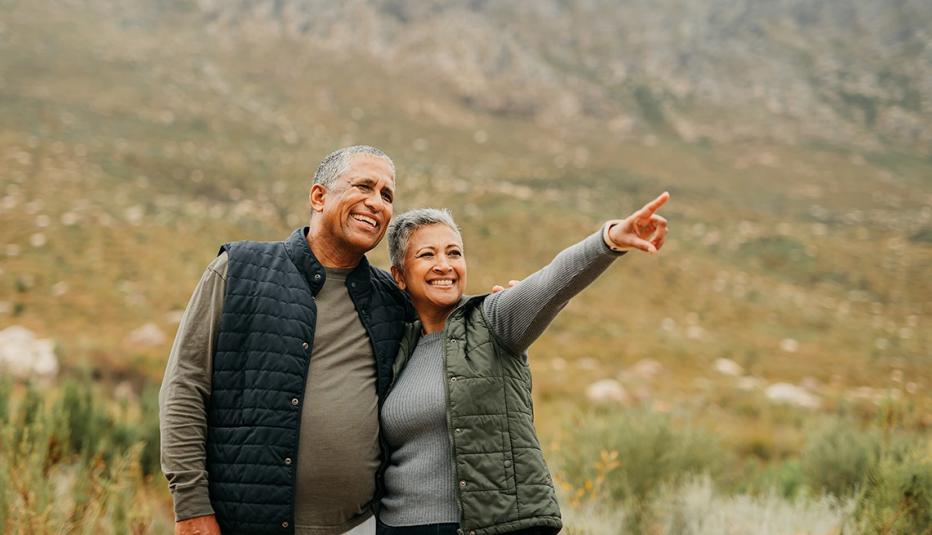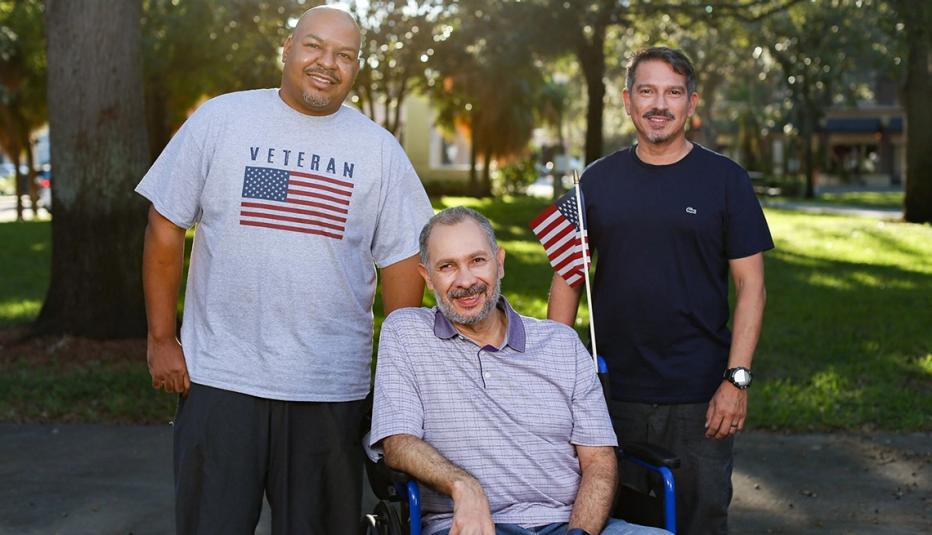AARP Hearing Center


Older African Americans are not a monolithic group with uniform opinions or experiences. African Americans born in 1964, for example, the year the Civil Rights Act passed, will turn 57 years old this year. In contrast, African Americans who are 75 or older were already 18 years old when the landmark legislation was signed into law. On the other hand, those who are 45 and older were born in 1976. For these Generation X Americans, Martin Luther King Jr. and the civil rights marches were historic events, rather than events that occurred during their lifetime. Each of these cohorts entered the world at a different point, but their experiences are linked and, unfortunately, in many ways very similar.
The 2020 Vital Voices Survey gathers information to gauge opinions on a range of topics as well as breaking and current issues. Among other issues, it explores concerns about racism and experience with discrimination among older African Americans and asks how these issues affect their daily lives. Much more research is needed to fully understand the impact, but this study can serve as a conversation starter.
The racial injustice on display in 2020 sparked protests around the world, but it only made visible what many in the African American community have experienced for many years. Four out of five (81%) African Americans 45-plus think that racism is a big problem, and half report that racial discrimination has negatively affected their well-being. Only about 5% of older Black Americans say racism is not a big problem. Interestingly, African American women 45-plus are more concerned than African American men about racism and racial discrimination (83% vs. 78%). This difference by gender does not indicate that Black men are not concerned about racism but perhaps that women may be more likely to report their concerns about racism, discrimination, and other well-being issues due to the intersectionality of gender and Black identity.
The Impact of Racism on Economic Security
The consequences of racism for economic security are broad and recurring. According to the Center for American Progress, “wealth is vastly unequally distributed across the United States. Black households have a fraction of the wealth of white households, leaving them in a much more precarious financial situation when a crisis strikes.” Historically discriminatory policies have made economic security difficult for many African Americans to attain.
Among the most popular government programs in the United States, Social Security provides critical financial support for older adults during retirement. Nearly all older Americans (88%) feel that Social Security is important, but it is even more important to older African Americans. More than nine in 10 (93%) older Black Americans report that having adequate Social Security benefits is important. In addition, Social Security is just as important to those 45–49 as it is to those 65-plus.
Age discrimination also hampers economic security. Four out of five (82%) African Americans 45-plus are, much more likely to than all adults (69%) in the same age group to say that protection from age discrimination is extremely or very important. Black women and those in the workforce are disproportionately also say that age discrimination is important to them personally.
Older African Americans outpace all older adults on other economic concerns as well, including protecting themselves against consumer fraud and unfair financial practices. In both cases, African Americans 45-plus are about 10% more likely to say these issues are extremely important to them.
All older Americans are also more likely than older Black Americans to report that they have been negatively affected by climate change, natural disasters, and the opioid epidemic. In fact, older African Americans are more likely to report being affected by discrimination and economic issues, while all older Americans are more likely to focus on a broader set of societal issues.
African Americans 45-plus prioritize the economic health of their larger community, and issues that are important to them personally may be more closely aligned with their community’s needs. For example, 70% of older African Americans identify having good employment opportunities in their community as extremely or very important. Similarly, they are more likely than all older adults to say that maintaining job skills and experience is personally important. Access to good jobs and ongoing job training are issues larger than one individual, one generation, or one community, and we must ensure access to jobs not only in the wider community but nationally as well.
The Many Faces of Racism and Discrimination
For older African Americans, racism and discrimination aren’t abstract concepts, and many report that they have experienced racism, discrimination, or violence. About half (49%) of African Americans 45-plus report that they have experienced racial discrimination. African Americans 45–49 are slightly more likely than their older counterparts to report that these experiences have negatively affected their well-being (ages 45–49, 54%; ages 50–64, 49%; ages 65-plus, 48%).
African Americans 45-plus also are more likely than all older Americans to report that excessive use of force by police has negatively affected them (39% vs. 24%). Older African American women are more likely than African American men to say that they have been affected by excessive use force police (41% vs. 36%). Older African Americans are also more likely than all older Americans to feel the negative impact of mass shootings (32% vs. 27%).
Double Discrimination
African Americans face both racial and age discrimination, but African Americans 45-plus are more likely to be affected by racial discrimination. About one-quarter (24%) of older African Americans say that age discrimination has negatively affected their well-being, while about one-half report that racial discrimination has done so. Similarly, older African American women disproportionately report being negatively affected by a wide range of issues, including racial discrimination, excessive use of force by police, affording healthcare, and mass shootings.
Racial Discrimination in New York State
An AARP New York State survey in 2019 explored racial discrimination in depth. The Vital Voices Survey of New York residents 50+ found that three-quarters of older African Americans had experienced racism sometimes or more often; one-half (48%) of older African Americans had personally seen or suffered racism very often or often, and a quarter (25%) were sometimes subjected to this type of discrimination. Those ages 50–64, in the workforce, and homeowners disproportionately reported experiencing racism.
Fewer New Yorkers experienced with ageism (61%) or sexism (55%). The share of older Black men and women who had experienced racism and sexism were roughly the same. About three in 10 older Black women and men experienced sexism very or somewhat often (30% vs. 27%). African Americans 50–64 were actually more likely than those 65-plus to report that they had experienced ageism (35% vs. 29%). One-third (34%) of older African American women say that they have experienced ageism very or somewhat often. These women face triple discrimination as older Americans, African Americans, and women.
These two recent AARP surveys show older African American’s experience with racism and discrimination. Black Americans 45-plus say that racism is a big problem in our society today because so many have experienced racism and discrimination firsthand, and they feel its impact in many ways. The negative influence carries across age groups and genders. Understanding people’s personal experiences and worries is an essential first step to righting these wrongs and improving the situation for all African Americans.
This article is based on survey data from AARP Vital Voices Research.































































